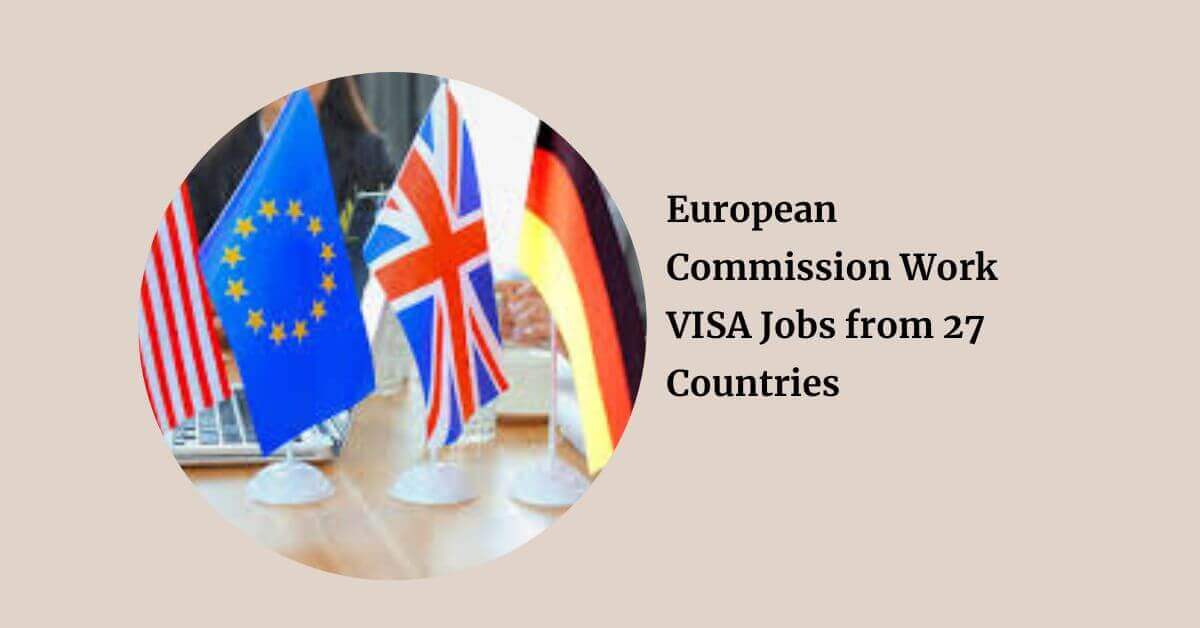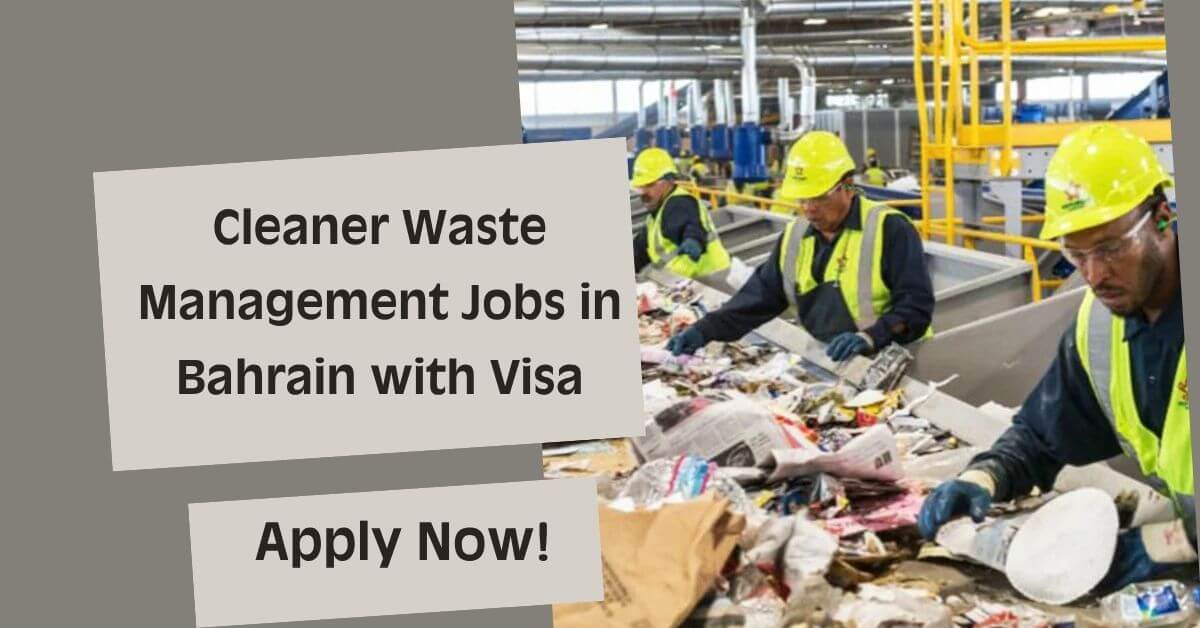The European Commission Work VISA Jobs from 27 countries provide a unique opportunity for skilled professionals to work within EU institutions and agencies while enjoying competitive compensation and career growth. Depending on the role and experience, salaries range from €35,000 to €70,000 annually, with additional benefits such as health insurance, pension contributions, and relocation assistance. These positions are open to candidates from 27 eligible countries, offering visa sponsorship and guidance for international applicants.
Responsibilities vary by role but generally include policy development, research, administration, and project management in diverse sectors such as finance, law, technology, and communications. With structured career paths, professional training programs, and opportunities to work in a multicultural environment, these positions provide a secure and prestigious pathway for long-term employment in Europe. Whether you are an experienced professional or seeking international exposure, European Commission work visa jobs offer stability, growth, and the chance to contribute to EU initiatives.
Is Europa Helpful in finding and Applying for EU Skill Shortage Jobs?
EUROPA is the main website of the European Union. It has a lot of useful information and services, like job openings all over Europe. EUROPA helps people looking for work link with job services in the EU, EEA, and Switzerland through the EURES (EURopean Employment Services) portal. EURES wants to make it easier for workers to move freely by giving companies and job seekers useful information, advice, and placement services.
Why Use EURES?
- Job Listings: See thousands of openings in a wide range of industries and locations.
- Information about living and working: Get help with the law and paperwork parts of working in other countries.
- Matching Services: Get help finding companies who are a good fit for your skills and qualifications.
List of 27 EU Member countries that list jobs on Europa: Austria, Belgium, Bulgaria, Croatia, Cyprus, Czech Republic, Denmark, Estonia, Finland, France, Germany, Greece, Hungary, Ireland, Italy, Latvia, Lithuania, Luxembourg, Malta, Netherlands, Poland, Portugal, Romania, Slovakia, Slovenia, Spain, Sweden.
List of 27 EEA countries that list jobs on Europa: Iceland, Liechtenstein, Norway, Switzerland.
Type of Jobs Are Offered on EUROPA : EUROPA has a lot of job openings in many fields, such as engineering, healthcare, IT, and more. People are especially interested in skill shortages, which are fields that need a lot of skilled workers. There are jobs for both skilled and unskilled workers, so it’s a useful tool for everyone looking for work.
How to Apply for Jobs on the EUROPA Portal?
There is a faster way to apply for work through the EUROPA portal. Here is a step-by-step plan to help you begin:
Search for Jobs:
Go to https://europa.eu/eures/portal/jv-se/home?lang=en to find out more about the EURES Job Mobility Portal. You can use keywords and filters to narrow down job listings based on location, work type, and other factors. This will help you discover jobs that match your interests and skills.
Application Process:
To show off your skills and abilities, make a Europass CV (https://daadscholarship.com/europass-cv-format-editable-template-to-create-european-style-cv/). Then you can either apply directly through the EURES portal or follow the employer’s entry links. Customizing your application to the needs of the job can greatly improve your chances of getting the job.
Work Permit and Visa:
Getting a work pass or visa is very important for people who are not from the EU. Find out exactly what the country you want to work in requires for a work pass. Your potential boss may be able to help you apply for a work permit. If you need a visa, you should apply for it after getting a job offer. Usually, you can do this through your local office or consulate. The EU Blue Card (https://apply.eu/) is a popular type of work visa that is made for people with a lot of skills.
Ensuring Trustworthy Employers on Europa:
Although the EUROPA platform is reliable, it’s not always easy to tell if a company is real. EURES takes steps to make sure that companies are real, but people looking for work should also:
- Research the Company: Find out more about the business online.
- Check Contact Information: Make sure the company gives you correct contact information.
- Be Wary of Unrealistic Offers: It is most likely true if something seems too good to be true.
- Trust Your Instincts: Be careful if something doesn’t feel right.
Benefits:
- Access to a Wide Range of Jobs: Working for the European Commission gives you access to a wide range of jobs in many different fields and industries. This variety lets people try out different job paths and gain useful experience.
- High Standards of Living: A lot of European countries have high standards of living, which means they have good facilities, healthcare, education, and public services. These perks are available to people who work for the European Commission and their families.
- Multicultural atmosphere: The European Commission promotes a multicultural atmosphere by bringing together professionals from a range of cultures, countries, and backgrounds. This variety helps people work together, come up with new ideas, and see things from a global viewpoint.
- Career Development and Training: The European Commission puts a lot of emphasis on career development and offers training programs to help workers get better at what they do. Focusing on professional growth can help you get better jobs and move up in your work.
- Pay and perks that are competitive: Most jobs at the European Commission come with competitive pay, benefits, and allowances. Some examples are health insurance, pension plans, paid time off, help with moving, and other perks that make people happier and safer financially.
- Stability and security of the job: Working for the European Commission often offers stability and security of the job, especially for permanent and long-term contract roles. Employees may gain from job security, job tenure, and the chance to move up to tenure-track positions.
- Collaboration and Networking: Workers can work together and make connections with experts from EU member states, foreign groups, government agencies, and the private sector. This kind of networking can lead to business relationships, teamwork, and job openings.
- Contribution to EU Policies and Initiatives: People who work for the European Commission can make a difference in EU policies, initiatives, projects, and programs that help achieve social, economic, and environmental goals. Employees may enjoy having a sense of purpose and making a difference.
- Travel and Mobility: Some jobs at the European Commission may allow you to travel and move around within the EU and to other countries. This can help people see things from different points of view, learn about other cultures, and improve their work lives.
Conclusion:
If you want to find and apply for jobs in Europe, EUROPA and EURES can help you. People from the EU and outside the EU can find a lot of job listings and other useful information that can help them through the application process, which includes getting work permits and visas. Working in Europe has many benefits, such as the chance to advance your job, get paid well, live in a stable area, work with people from different cultures, and help shape EU policies and programs.
Frequently Asked Questions
What types of jobs are offered on EUROPA?
EUROPA has job openings in various fields, such as engineering, healthcare, IT, and more. It also focuses on skill shortage areas that require skilled workers.
How can I ensure that employers on EUROPA are trustworthy?
Research the company, check contact information, be wary of unrealistic offers, and trust your instincts to ensure the legitimacy of employers on EUROPA.






